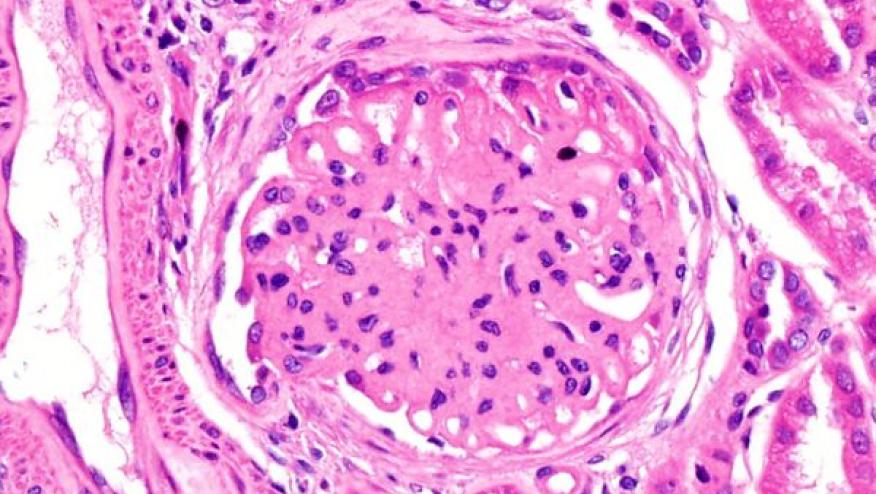Tight control of proteinuria in newly diagnosed lupus nephritis Save

The last 3 years have been exciting times in the field of lupus nephritis (LN) with two new licensed therapies, belimumab (BAFF-inhibitor) and voclosporin (calcineurin-inhibitor). For the first time, treatment target is a realistic ambition and is recommended in international guidelines.
The 2019 Joint EULAR-ERA-EDTA recommended a target of complete renal response, as defined by proteinuria <0.5–0.7g/24hr with (near-)normal eGFR) by 12 months. Since reduced proteinuria at one year is the best predictor of improved long-term renal outcomes in LN, is there rationale to set a tighter treatment target to ≤0.5 g/24hr?
At the ACR 2022 Conference, Dr Gladman et al. (Abstract #2016) conducted a cohort study using the Toronto Cohort Database in 418 patients with active LN. Remarkably, 50% of patients achieved renal remission (defined by proteinuria <0.5g/24h, no active urinary sediment and serum creatinine of ± 20% of baseline) within 12 months of LN diagnosis. Long-term follow-up showed 16% of patients developed advanced Chronic Kidney Disease (CKD, defined by eGFR≦29ml/min/1.73m2) after 9.5 years on average. Risk of advanced CKD progression was substantially reduced if remission was achieved by 12 months of diagnosis compared to achieving remission between 1-3 years or after 3 years. Moreover, this risk was also increased in patients who had at least one flare episode and shorter duration on immunosuppressive therapies.
The study above provides a rationale for us to be more ambitious and adjust our treatment target to proteinuria ≤0.5 g/24hr within 1 year of LN diagnosis. How can this be achieved?
Early recognition and diagnosis of LN, better education to the patients on the importance of adherence to medication and tight control of blood pressure including the use of ace-inhibitors would help. From therapeutic perspective, since data from belimumab and voclosporin RCTs have shown superior response of these therapies as add on to standard therapies with MMF vs MMF only, waiting for patients to respond to MMF only for 3-6 months as remission induction should no longer be an acceptable practice.
Aggressive and combination therapies (corticosteroid + anti-malarials + MMF) plus therapies available in one’s country/healthcare provider, e.g., belimumab/voclosporin/rituximab/cyclophosphamide/other calcineurin inhibitors should be employed in the outset to preserve nephrons and importantly improve short- and long-term outcomes including prevention of progression to advanced CKD and deaths. Several international guidelines are currently undergoing revision to account for this.










If you are a health practitioner, you may Login/Register to comment.
Due to the nature of these comment forums, only health practitioners are allowed to comment at this time.